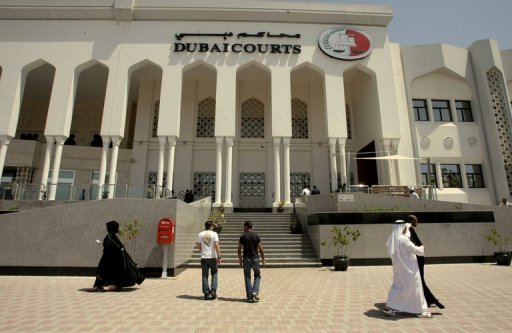South Korea –Despite the long distance between Egypt and South Korea, as it takes around 12 hours to fly from Egypt to South Korea, the bilateral relations in all fields are very strong.
Daily News Egypt interviewed Jung Hee-chul, Director of the Korea International Trade Association`s (KITA) Asia & Oceania Department, to know more about the economic relations between the two countries.
KITA was established in 1946 with the objective of advancing the Korean economy through trade, and is currently the largest business organization in Korea with over 70,000 member companies. KITA’s goal is to contribute to the development of South Korea’s national economy as a private economic organization through advocacy of the Korean trade industry’s rights and interests, and thereby facilitating global trade.
How do you see the economic relations between South Korea and Egypt?
In terms of economic trade between nations, complementary trade would be the ideal type of the trade structure that Korea seeks with its partners. Currently, South Korea exports intermediate goods to and imports raw materials from Egypt. Moreover, recent news of Korea building a nuclear power plant in Egypt means that Korea will be able to play a part by providing crucial components to Egypt.
Why does KITA have no office in Egypt? Is there a plan to open one?
As KITA represents the benefits and interests of our member companies, we open overseas offices based on the needs and demands of our member companies. When there is a significant concentration of Korean companies in Egypt or neighbouring countries, KITA will open a branch office in Cairo.
What are your expectations for Egypt-Korea trade exchange in 2022?
In 2022, Egypt’s exports to Korea are likely to increase by 2.5 times on an annual basis, while Korea’s exports to Egypt are likely to remain the same.
What are the most important exports and imports between the two countries?
Automobiles are the largest exported products from Korea to Egypt, which amounted to $173m in 2021. Egypt’s main exports to Korea were naphtha and natural gas, reaching $470m in 2021.
How did the coronavirus pandemic and the Russia-Ukraine war impact the Korean-Egyptian trade exchange?
Due to the global impact of the COVID-19 pandemic, Korea-Egypt trade faltered but it soon rebounded with the ease of social distancing. As the Russia-Ukraine War had a critical influence on energy, Egypt’s exports of raw materials and natural gas to Korea increased rapidly. There are always hardships that hamper international trade but both countries will support each other in these challenging times by complementing each other.
Would Egypt and Korea benefit from a free trade agreement (FTA)?
From KITA’s point of view, a FTA with Egypt is a clear motivation to increase trade between the two countries. Specifically, the agreement would be a good opportunity for Korean companies competing with the EU and Turkish companies, which are already benefiting from FTAs with Egypt.
As South Korea and Egypt already negotiate a potential FTA, what are the updates in this regard? What are the challenges hindering this end?
Korea is heavily dependent on foreign trade and supports all bilateral discussions that will open new opportunities between the two countries. Regarding talks on the FTA, KITA has not been updated with the progress but balancing consumer welfare and protecting vulnerable industries should come as a priority, as with any other FTA’s.
What do you think of Egypt’s investment climate and its economic performance?
Egypt is now the 40th top export destination of Korea (according to the statistics of Korea). KITA believes that Egypt has huge potential to be a bigger economic partner of Korea. Moreover, abundant and vibrant young populations of Egypt would be a great advantage not just to Korea but to investors worldwide.
How does the South Korean private sector see the Egyptian prime minister’s latest announcement to support private businesses?
The Korean private sector believes it would be an opportunity to broaden the participation of Korean companies in the energy sector including hydrogen production. Again, Korea is thrilled to hear the progress of the first nuclear power plant in El-Dabaa. The new project will attract many Korean companies in the energy sector to Egypt.
What are the challenges that Korean investors in Egypt are facing? What are your recommendations to further improve the business climate in Egypt?
Companies are always interested in policies regarding labour and tax benefits. Since language is always a barrier to Korean companies, an internet platform to obtain the information and enable submission of Q&A in Korean language will be very helpful to the Korean companies interested in the region.
Could you estimate the volume of Korean investments in Egypt? What are the promising sectors?
From 2017 to 2021, there were 15 Korean investment projects in Egypt with a total value of $196m. We believe renewables and hydrogen production would be a promising sector in the future.
Has KITA undertaken any preparations for business missions to Egypt in 2022?
Frankly speaking, it is not easy to dispatch a business delegation to Egypt or the Maghreb region during the remainder of 2022. With pandemic still on the loose, it is still difficult to find optimal and affordable flights. When the circumstances return to normal, we do intend to send trade delegations to various destinations including the Maghreb.
What are KITA’s plans for the Middle East, in general, and Egypt in the coming few years?
KITA plans to organize business roundtables with countries in the Middle East where companies in Korea and Egypt can network with each other. KITA also hopes to host roundtables or business networking events with economic organizations of Egypt.


